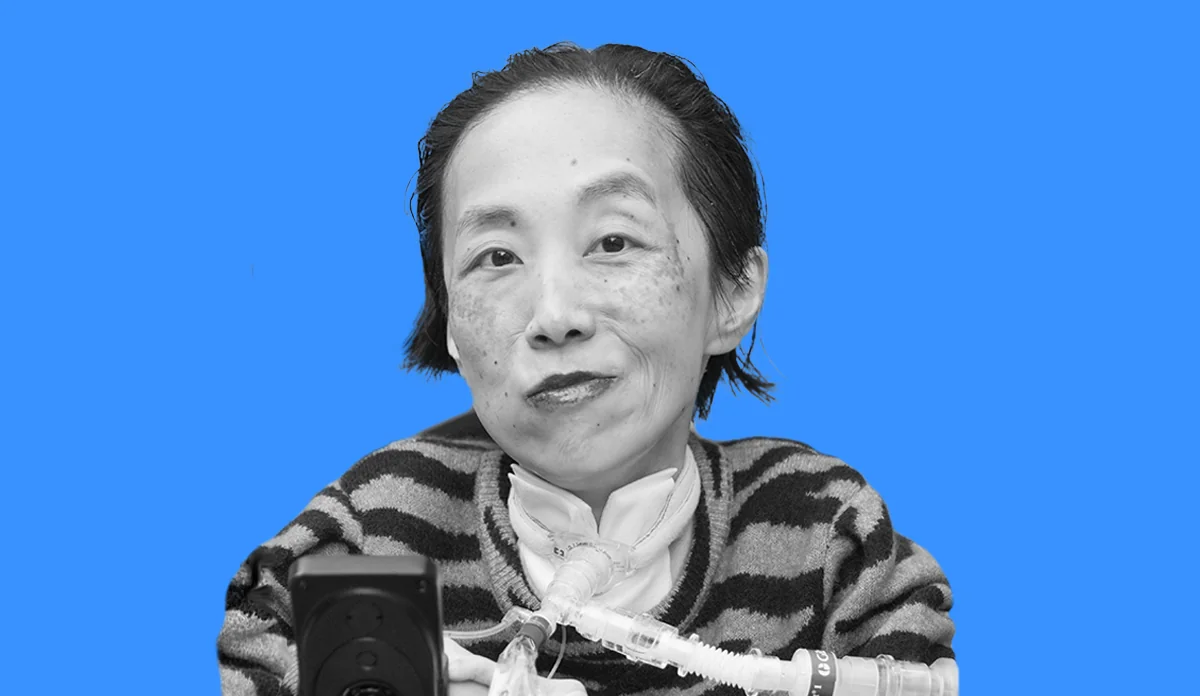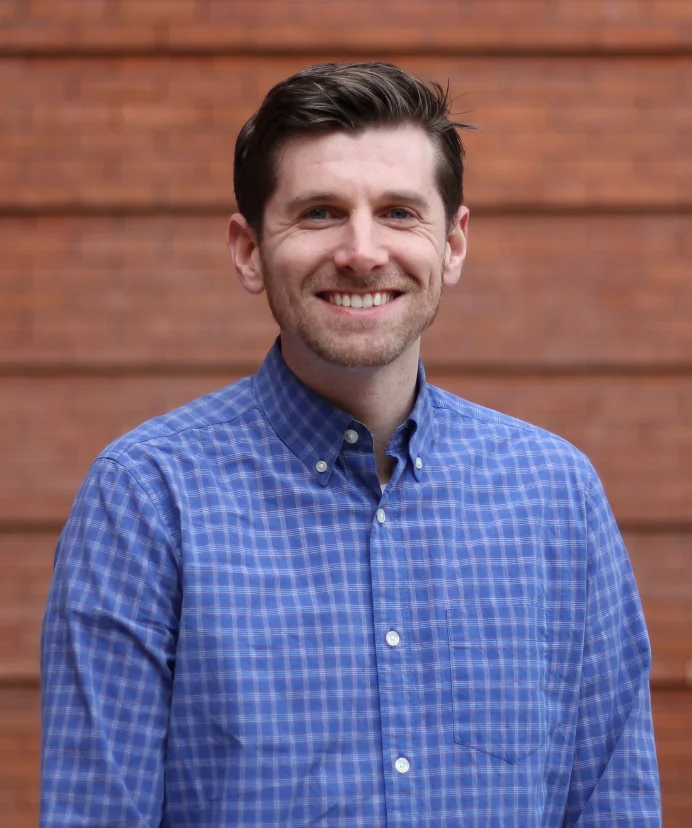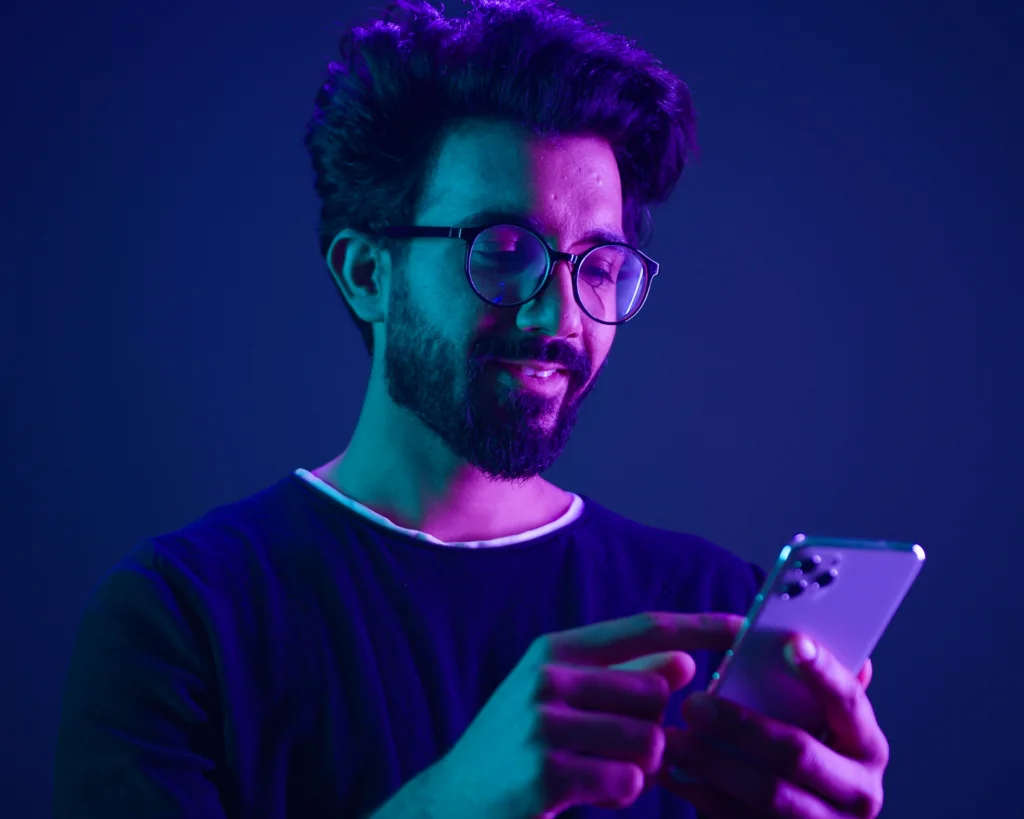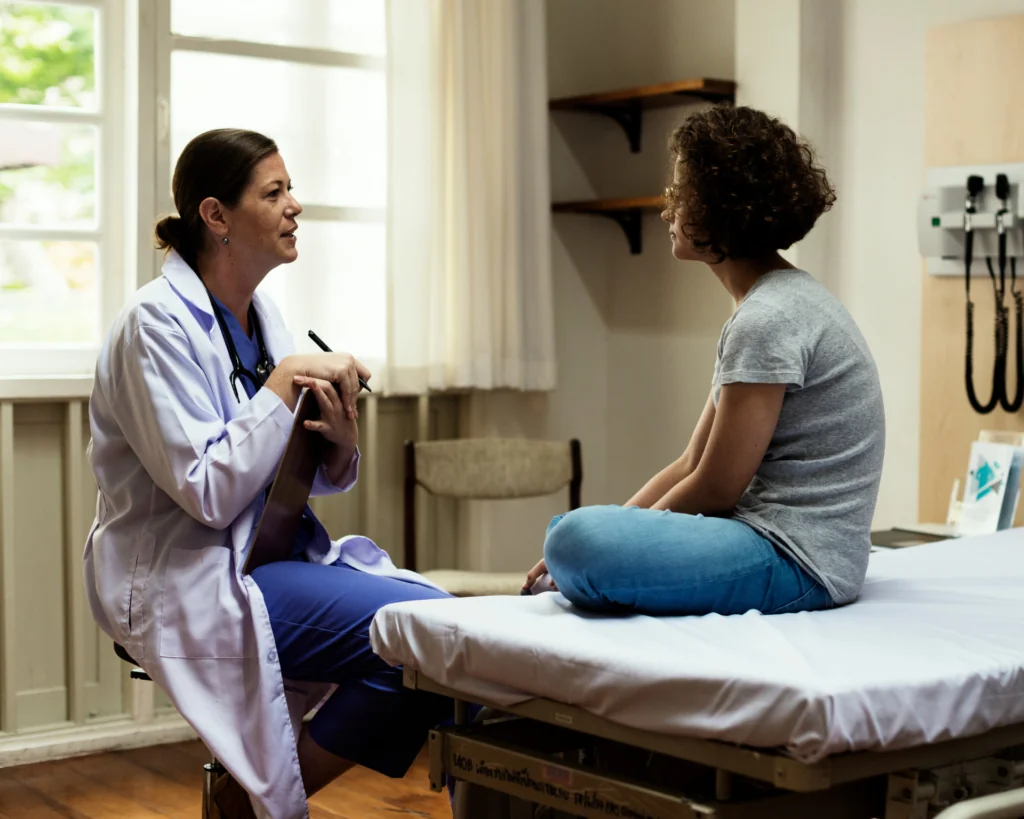Alice Wong
Alice Wong is an activist, writer, and author. She discusses her recent book, Disability Visibility: First-Person Stories from the Twenty-First Century, what it means to be an activist, and the importance of diverse perspectives in storytelling.

Read Time: 8 minutes
Published:
Alice Wong is a disabled multi-hyphenate: activist, author, writer, media maker, consultant. She is the founder of the Disability Visibility Project, and is author to several books, including Disability Visibility: First-Person Stories from the Twenty-First Century.
Alice Wong is everywhere: her pieces have reached a wide audience with media publications from Al Jazeeza to Bitch Media, and many more. In 2014, Wong founded the Disability Visibility Project, a community that centers on giving power to disability media and culture. Her memoir Year of the Tiger: An Activist’s Life, hit the shelves in 2022, and she is currently working on a new anthology, Disability Intimacy.
Wong’s book, Disability Visibility: First-Person Stories from the Twenty-First Century, is the selected Boston University SPH Reads book for the Fall 2023 semester. This book is a collection of writings curated and edited by Wong to showcase disabled authors and their perspectives. The book discusses pervasive systems of ableism and inequity, offers moments of thoughtful wisdom and reflection, and presents spaces where disabled joy thrives.
Ahead of her book discussion at the School of Public Health on September 14, Wong shared more about who she is, her process of turning her book from a vision into a reality, and her thoughts on the impact and legacy of her writings and activism.
Public Health Post: What is your favorite food?
Alice Wong: Last year I had a number of medical crises. I am now unable to eat by mouth and I use a feeding tube for nutrition. Swallowing is dangerous for me, so I taste some soft things like ice cream and spit them in a cup so I can at least have some flavor in my life.
I love pureed ginger and carrot soup and ice cream. My favorite ice cream flavors are coffee, chocolate, and mango.
What is your favorite book or author?
I recommend and enjoyed Leah Lakshmi Piepzna-Samarsinha’s The Future is Disabled and Ed Yong’s An Immense World. I also believe every public health student and professional should read The Viral Underclass: The Human Toll When Inequality and Disease Collide by Dr. Steven Thrasher.
I love anything by Jane Austen, especially Persuasion and Pride and Prejudice, and graphic novels by Gene Luen Yang, such as American Born Chinese and Boxers and Saints.
What is your favorite quote?
“Hope is a discipline.” – Mariame Kaba, co-author of Let This Radicalize You
You have been an activist for many years, working tirelessly for disability justice. How did you become the activist that you are today?
I am a disabled person born in a non-disabled world, so I had no choice but to be an activist—that role was a means of survival for me.
It took me a long time to be able to identify as an activist and understand that there is no one way to do this work. I became who I am today by being in community with others, learning, growing, and making lots of mistakes.
I don’t think there is anything glamorous or idealistic about being an activist–it’s effin’ hard! Being part of a larger movement with other folks keeps me going. But, I wish that many marginalized people didn’t have to struggle so much. I dream of a day where disabled people don’t feel compelled to be an activist or advocate so much for themselves.
What would you say to people who are thinking about becoming more involved in disability activism?
Connect with your community: on campus, in your local community, or online. You are not alone! Activism can be both big and small actions. It can be about strategy, building with others, or sharing your time and wisdom. As long as you are passionate about something and want to create change, activism can be whatever you want it to be.
This book calls out and unpacks ableism through powerful stories. Can you talk about the motivations that turned this book from an idea to a reality?
Many books about disability come from a biomedical model or are filled with stories about disability by non-disabled people or from only a White disabled perspective.
In Disability Visibility, it was important for me to share works by disabled people because there are not enough stories for and by us. The book intentionally presents diverse perspectives and experiences to discuss a variety of issues in political, personal, and powerful ways. I hope readers are surprised to discover how every issue–from climate change to the #MeToo movement to mass incarceration–is a disability issue.
What do you hope readers will take with them after reading this book?
I would like people to feel invigorated, enraged, and motivated. I hope the book increases readers’ understanding of ableism and makes them want to learn more about disability from the perspective of actual disabled people, especially if this is the first time a reader encounters so many different perspectives. There is a section in the back of the book with additional readings and resources for this reason.
Can you share some of the challenges you see at the policy level?
Non-disabled people got a small sense of the importance of accessibility during the height of the pandemic. There were significant benefits to having curbside grocery or library pickup; hybrid and asynchronous remote learning options; online concerts, museum exhibits, and conferences; and Zoom meetings. Many of my disabled friends and I find it ironic that these changes were suddenly made possible because non-disabled people were inconvenienced. A few inroads for a more flexible and accessible world during the pandemic have now largely disappeared, which is a real shame.
Public health has deteriorated in the last few years with prominent health care professionals, public officials, and policy makers, such as Dr. Ashish Jha who has been platformed by the Boston Globe and Dr. Leana Wen with the Washington Post, who continue to minimize the pandemic and promote the ideas that long COVID is not a the mass disabling event that it is, that everyone will be fine because vaccines and Paxlovid exist without acknowledging structural barriers and racial disparities, and that immunocompromised and high-risk folks are outliers who are inevitable, acceptable losses. Just because you may have several comorbidities or be over 65 years old doesn’t mean you deserve harm and adverse outcomes from an infection. High risk people like me have been sidelined and forgotten by the state.
In a tweet by Dr. Jha on August 13th of this year he gave this advice, “Get treated if infected, Use masks and tests if you wish, And don’t worry about every new variant.” Treatment is not always available or affordable to those most impacted by the pandemic. “If you wish” to get tested erases the fact that testing is no longer free and easily accessible and that people in positions of authority like him find that masks are optional despite the fact that this is an airborne virus that is easily transmissible by asymptomatic people. The condescension of telling the public to not be worried by the latest EG.5 variant dismisses the valid fear of high risk people who struggle to exist in public spaces without being harassed for masking or requesting accommodations because the current systems in place have abandoned us in a push to return to “normal.”
The pandemic is not over. People need to continue to wear masks in addition to pushing for better air quality and other mitigation efforts instead of focusing on individual responsibility and the “you do you” philosophy. People can still go see Taylor Swift or Beyoncé if they take care precautions. And precautions aren’t just for you, they are for everyone. This is what community care is all about. Public health is supposed to address the entire population, not just the ones who are healthy, young, and “productive.”
It disheartens me to see the head of the CDC maskless in photos on social media. The messaging is obvious from the top all the way to the local level: the pandemic is not deadly and just a “summer flu” for “normal” people and f*ck everyone else because that’s just how hypercapitalism, racism, eugenics, and ableism works.
We need more disabled people and people from marginalized communities in public health and all of the health professions. In an essay by Christine Mitchell for the Disability Visibility Project “The ongoing rate of COVID cases, hospitalizations, and deaths we are seeing in the US isn’t inevitable; it’s a policy choice…We can choose a different way forward, a way that protects the health of all of us, starting with disabled people, those most at risk of morbidity and mortality, and those who have been historically and structurally marginalized. We must hold our government accountable for the policy choices that have led to the thousands of lives lost to COVID-19 every day in the US. We must create pathways for disabled people to enter the fields of public health and medicine and to help shape the policies that affect us. We must invest in public health research that addresses gaps in data about disabled people so that we can create inclusive evidence-based policy towards health equity. We must center disability and racial justice not just in word, but in action. We must continue to wear masks, get vaccinated and boosted, and engage in hard conversations with our families, our friends, and our communities to do the same.”
The upcoming Public Health Conversation SPH Reads: Disability Visibility, A Conversation with Editor Alice Wong will take place online on Thursday, September 14 from 5-6pm. You can register here.
Photo provided. This interview has been edited for length and clarity. View the full transcript here.



